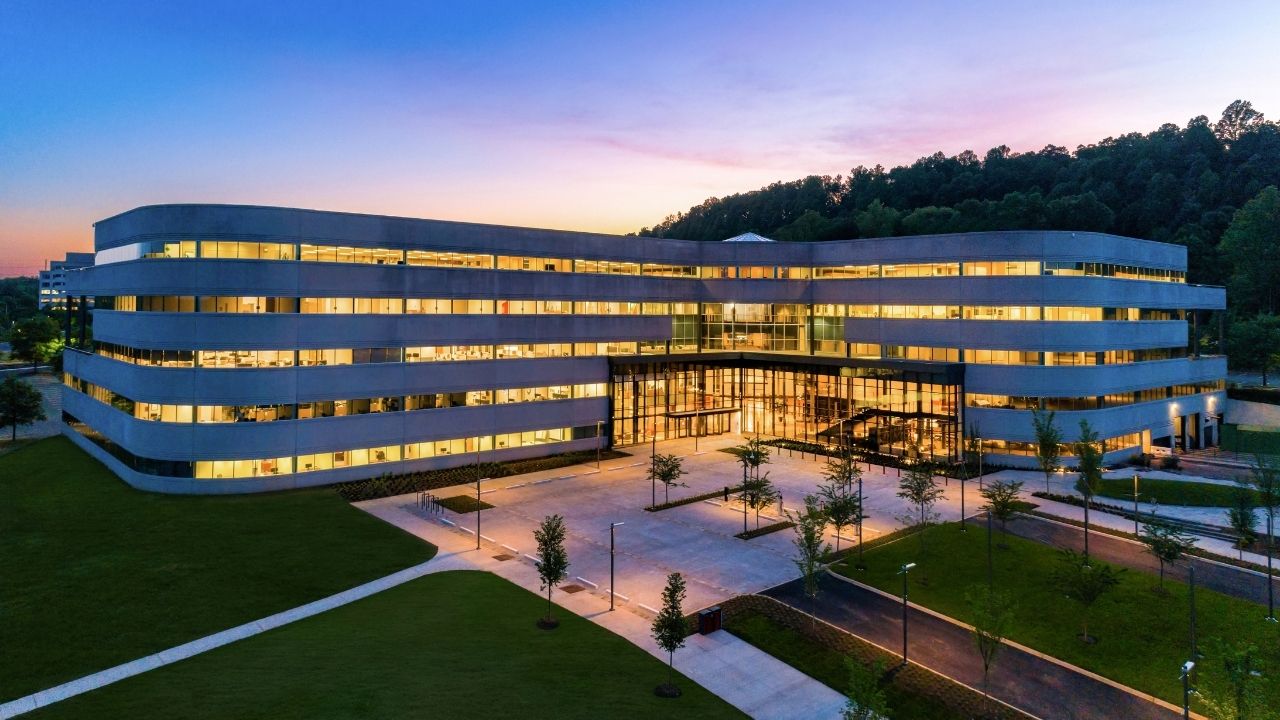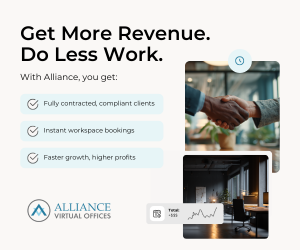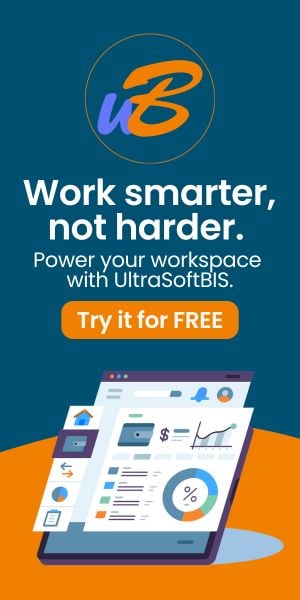- As remote work becomes mainstream, organizations will need to rethink their workplace strategy to attract workers back into the office.
- This has prompted the rise of live-work-play concepts.
- The Connell Company is redeveloping The Park to create a shared campus experience in suburban New Jersey.
“What do organizations (and the workplace) need to be successful and attract people?” That is the question that inspired the $400 million redevelopment and renovation of The Park, a 185-acre complex in Berkeley Heights, New Jersey.
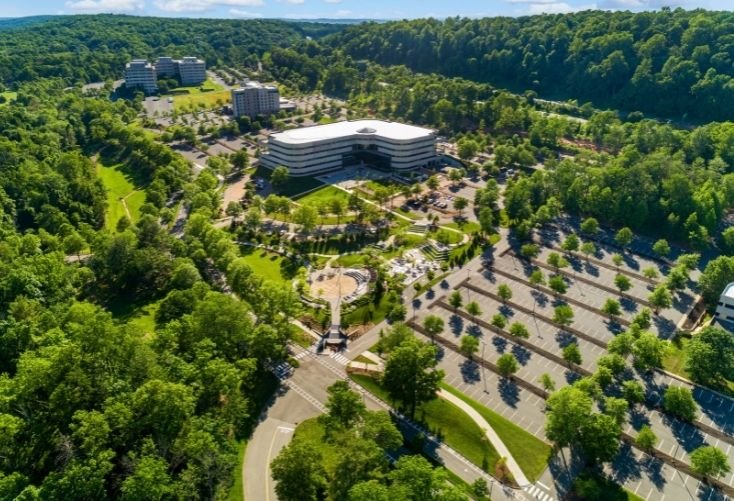
Back in the late 80s and early 90s, The Park was a corporate office complex made up of five Class A buildings.
But work has changed a lot since the 80s and 90s, especially now that the coronavirus pandemic has accelerated a lot of shifts in the way people work.
“We did a lot of research and transformed The Park into a lifestyle complex,” Shane Connell, executive vice president at the Connell Co., told Allwork.Space. “We wanted to identify what workplaces need to be successful and attract people; our focus was, how can we change The Park for it to be a place where companies want to be at, how can we help these companies attract and retain the best people?”
Part of the inspiration behind The Park came from what big tech companies were doing in the West Coast. “We were seeing Big Tech build these tremendous campuses; but they are exclusive to their employees, they are single user. With The Park, we are bringing that same concept to all of our tenants—large and small.”
The Rise of Live-work-play Communities
With the onset of the COVID-19 pandemic, people were forced to work from home and students were forced to study from home.
Interestingly, while workers want to keep working remotely, students seem keen on going back to campus.
“What we find fascinating from our research is that COVID has changed perceptions of where people should work, but not where they should study,” Connell added.
This brought forth the question, what are universities and colleges doing right that the workplace isn’t?
“University experience is much more than academics; which is why people still want to be in campus. The same should be for work,” Connell said.
This prompted the Connell Company to reinvest $400 million into The Park to transform it into a live-work-play campus.
“We are traying to create a lifestyle brand. The Park is about reminding people that you can be busy making a living, but not too busy to make a life. Through The Park, our lifestyle offerings become part of workers’ day to day lives.”
As part of the redevelopment, the Connell Company is renovating the 5 office buildings in The Park, as well as investing in public spaces, which include parks, trails, and outdoor work areas.
“We are creating spaces people want to be in.”
This means that The Park is no longer just a place people go to work; it’s the place people go to meet with friends, have a family outing, work out, or go to wellness checkups.
Once the redevelopment is complete, The Park will offer flexible workspace, residential space, dining options, fitness amenities, and healthcare to its tenants.
The Park is only one example of how property owners and developers are reimagining the way they deliver workspace to tenants.
Similar work-live-play concepts are being launched across the US. Irvine Spectrum has developed Discovery Park, which spans 1.95 million square feet. Somerset Development reimagined the historic Bell Labs building into a “metroburb”, Bell Works.
Like The Park, both Discovery Park and Bell Works are creating environments that will help professionals integrate their work and personal lives, offering city amenities in a suburban, near-home setting.
The Need for Flex
The Connell Company recently announced the opening of its flexible workspace brand Round Table Studios (RTS), as part of The Park’s redevelopment.
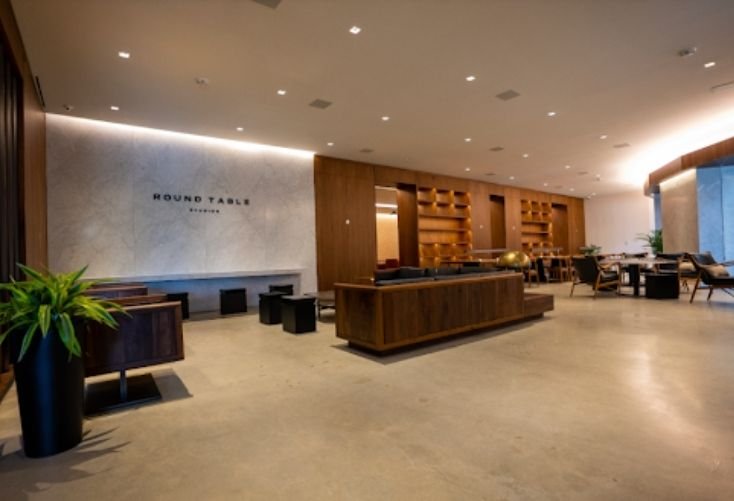
RTS is a 40,000 square-foot workspace that is modeled after Soho House. RTS offers a variety of seating and office options, including configurable office suite ‘Studios,’ on-demand ‘Meeting Rooms,’ a traditional co-working ‘Gallery’ and upscale co-working ‘Library’.
According to Connell, the company decided to launch its own flexible workspace brand “for people to access the campus and its amenities.” RTS also caters to corporations exploring a hub-and-spoke/satellite office approach.
People are still working from home. While return-to-office plans are still part of the future, many organizations are searching for solutions that will enable employees to work near home, eliminating the need for long commutes.


 Dr. Gleb Tsipursky – The Office Whisperer
Dr. Gleb Tsipursky – The Office Whisperer Nirit Cohen – WorkFutures
Nirit Cohen – WorkFutures Angela Howard – Culture Expert
Angela Howard – Culture Expert Drew Jones – Design & Innovation
Drew Jones – Design & Innovation Jonathan Price – CRE & Flex Expert
Jonathan Price – CRE & Flex Expert
